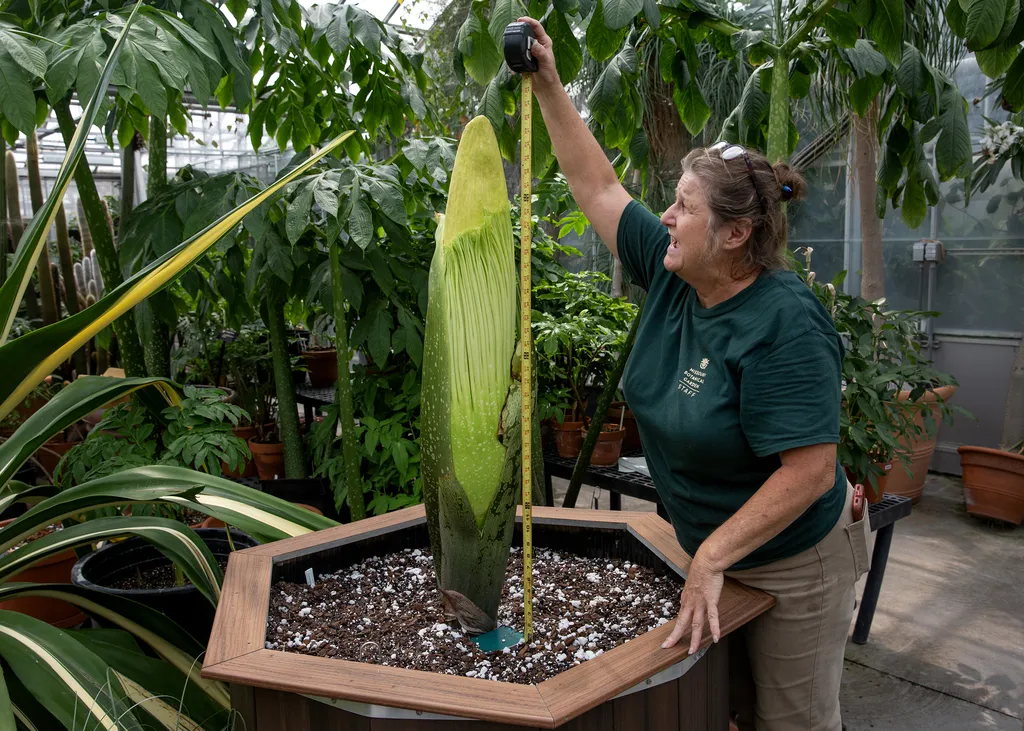In the dense tropical forests and sprawling agricultural landscapes, a humble yet remarkable plant genus, Amorphophallus, has been steadily gaining attention from researchers worldwide. A recent bibliometric study, published in the *BIO Web of Conferences* (translated from French as “BIO Conference Proceedings”), sheds light on the growing significance of Amorphophallus, offering insights into its potential to revolutionize sustainable agriculture, biotechnology, and even the energy sector.
Led by Salupi Wida from the Science Education Program at the Faculty of Teacher Training and Education at Lambung Mangkurat University, the study meticulously maps out a century of research on Amorphophallus, from its early taxonomic descriptions to its emerging role in modern biotechnology. By analyzing data from the Scopus database spanning from 1912 to 2024, Wida and her team used advanced tools like VOSviewer and Biblioshiny to visualize and interpret global research trends.
“The genus Amorphophallus is not just a botanical curiosity; it’s a powerhouse of untapped potential,” Wida explains. “Its tubers are a rich source of carbohydrates, its bioactive compounds like glucomannan hold promise for pharmaceuticals, and its applications in cosmetics and bio-based industries are just beginning to be explored.”
One of the most compelling aspects of this research is its implications for sustainable agriculture and food security. As climate change and land degradation continue to threaten tropical regions, Amorphophallus could emerge as a resilient crop. Its tubers, for instance, could serve as alternative carbohydrate sources, providing a much-needed boost to food security in vulnerable regions.
But the potential doesn’t stop at the dinner table. The study highlights the genus’s role in biodiversity conservation and resource-based economic development. “Amorphophallus isn’t just about one application; it’s about a holistic approach to sustainable development,” Wida notes. “From pharmaceuticals to biofuels, this genus has the potential to drive innovation across multiple sectors.”
For the energy sector, the implications are particularly intriguing. The study suggests that Amorphophallus could play a significant role in the development of bio-based industries, including biofuels. As the world shifts towards renewable energy sources, the potential of Amorphophallus to contribute to this transition cannot be overlooked.
By providing a comprehensive overview of global research on Amorphophallus, this study not only reconstructs its historical development but also identifies emerging trends. It offers strategic insights that could guide future research and the sustainable utilization of this valuable tropical bioresource. As Wida and her team continue to explore the possibilities, one thing is clear: Amorphophallus is more than just a plant—it’s a beacon of hope for a sustainable future.
As the world grapples with the challenges of climate change and resource depletion, the insights from this study could pave the way for innovative solutions that harness the power of tropical bioresources. The journey of Amorphophallus from the shadows of tropical forests to the forefront of biotechnological innovation is a testament to the untapped potential of nature’s bounty. With strategic research and sustainable practices, Amorphophallus could indeed become a cornerstone of the bio-based economy, driving growth and innovation in the energy sector and beyond.

